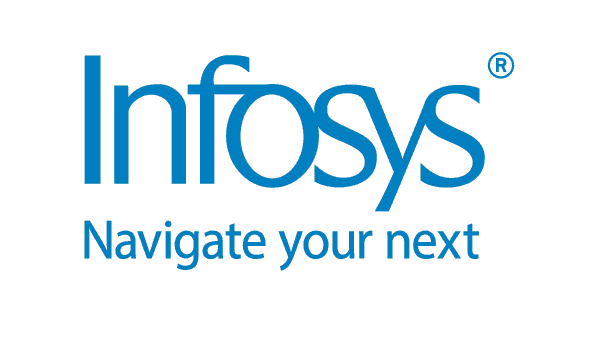In this blog post, we explore the Infosys Business Model to explain and understand how the Business of the tech giant is structured and to learn about how Infosys makes money.
Infosys, one of the leading global technology companies, has consistently demonstrated its prowess in the information technology (IT) and consulting space. With a humble beginning in 1981, the company has now established itself as a dominant player in the industry. In this blog post, we will explore the Infosys business model through the lens of Alexander Osterwalder’s Business Model Canvas, delving into the company’s unique value proposition, revenue streams, and key resources. We will also introduce the founders and recount the story of how and why Infosys came into existence.
The Founders and the Birth of Infosys
Infosys was founded by seven engineers who had a shared vision of creating a world-class IT services company that could compete with the best. The founding team consisted of N.R. Narayana Murthy, Nandan Nilekani, S. Gopalakrishnan, S.D. Shibulal, K. Dinesh, Ashok Arora, and N.S. Raghavan. Their collective experience in the IT industry and their determination to create a globally recognized brand laid the foundation for the company’s remarkable success.
Infosys was started with an initial investment of just $250, borrowed from the founders’ spouses. The company faced several challenges in its early years, including a lack of access to funds, infrastructure, and a supportive regulatory environment. However, the founders remained committed to their vision and navigated through these difficulties to establish Infosys as a major IT player.
Now that we have introduced the company and its founders, let us analyze the Infosys business model using Alexander Osterwalder’s Business Model Canvas.
Business Model Canvas of Infosys
The Business Model Canvas, developed by Alexander Osterwalder, is a strategic management tool used to visualize, design, and analyze the different aspects of a company’s business model. The canvas is divided into nine building blocks, which cover the four main areas of a business: customers, offer, infrastructure, and financial viability. These blocks are:
- Customer Segments
- Value Propositions
- Channels
- Customer Relationships
- Revenue Streams
- Key Resources
- Key Activities
- Key Partnerships
- Cost Structure
Let us examine each block in the context of the Infosys business model.
- Customer Segments
Infosys primarily caters to large enterprises and organizations in various industries, including financial services, retail, manufacturing, healthcare, and telecommunications. Its customers are spread across the globe, with a significant presence in North America, Europe, and the Asia-Pacific region. Infosys’ customer base is diverse and includes Fortune 500 companies, government agencies, and small and medium-sized businesses.
- Value Propositions
Infosys offers a wide range of services and solutions designed to meet the unique needs of its customers. The company’s value propositions include:
a. Quality and reliability: Infosys is known for its high-quality services and adherence to strict quality control standards. The company has consistently achieved high customer satisfaction ratings, which have helped it maintain long-term relationships with clients.
b. Innovation: Infosys invests significantly in research and development to stay ahead of the curve in the ever-evolving technology landscape. The company’s innovation labs and centers of excellence enable it to offer cutting-edge solutions to its clients.
c. Cost-effective solutions: Infosys leverages its global delivery model, which combines onsite and offshore resources, to provide cost-effective solutions to its customers. This model allows the company to offer competitive pricing without compromising on quality.
d. End-to-end services: Infosys offers a comprehensive suite of services that cover the entire IT lifecycle, from consulting and systems integration to application development, maintenance, and business process outsourcing. This end-to-end service offering enables clients to fulfill all their IT needs through a single, trusted partner.
e. Customization and flexibility: Infosys understands the unique requirements of each client and designs solutions tailored to their specific needs. The company’s flexible engagement models and commitment to customization ensure that clients get the best possible value from their investments.
- Channels
Infosys uses a combination of direct sales and strategic partnerships to reach its customers. The company’s sales force is organized into industry-focused teams that work closely with clients to understand their needs and offer tailored solutions. Infosys also partners with leading technology companies, such as Microsoft, Oracle, and SAP, to enhance its offerings and expand its market reach. In addition, the company uses digital marketing, industry events, and thought leadership initiatives to generate leads and build brand awareness.
- Customer Relationships
Infosys is committed to building long-term relationships with its clients. The company achieves this through:
a. Dedicated account management: Each client is assigned a dedicated account manager who serves as the primary point of contact and ensures that the client’s needs are met throughout the engagement.
b. Proactive communication: Infosys regularly communicates with clients through various channels, such as quarterly business reviews, client satisfaction surveys, and project status updates, to gather feedback and address any concerns.
c. Continuous improvement: Infosys has a strong focus on continuous improvement and incorporates client feedback into its processes and methodologies to enhance service delivery.
d. Client-centric culture: The company’s client-centric culture emphasizes the importance of understanding and addressing the unique needs of each client, which helps foster strong, long-lasting relationships.
- Revenue Streams
Infosys generates revenue through a variety of pricing models, including:
a. Time and materials: Clients pay for the actual time and resources used in delivering a project, with billing based on an agreed-upon hourly or daily rate.
b. Fixed-price contracts: The company and the client agree on a fixed price for a specific scope of work, and Infosys bears the risk of cost overruns.
c. Outcome-based pricing: Infosys is paid based on the achievement of predefined milestones or the realization of specific business outcomes.
d. Managed services contracts: Clients pay a fixed monthly or annual fee for ongoing IT services, such as application maintenance, infrastructure management, or business process outsourcing.
- Key Resources
Infosys relies on several key resources to deliver value to its clients, including:
a. Skilled workforce: The company’s talented pool of engineers, consultants, and domain experts is its most valuable asset. Infosys invests in employee training and development to maintain a high level of technical expertise and industry knowledge.
b. Intellectual property: Infosys has developed numerous proprietary tools, frameworks, and methodologies that enable it to offer innovative and differentiated solutions to clients.
c. Global delivery model: The company’s global delivery model, which combines onsite and offshore resources, allows it to provide cost-effective, high-quality services to clients.
d. Infrastructure: Infosys has a robust infrastructure comprising state-of-the-art development centers, data centers, and network facilities that enable seamless service delivery.
- Key Activities
Infosys’ key activities include:
a. Project management: The company manages complex, large-scale projects for its clients, ensuring timely and successful delivery.
b. Consulting and systems integration: Infosys provides strategic advice and technical expertise to help clients integrate new technologies and systems into their existing IT landscape.
c. Application development and maintenance: The company develops, maintains, and enhances software applications to support clients’ business processes and operations.
d. Business process outsourcing: Infosys offers a range of BPO services, such as finance and accounting, human resources, and customer support, to help clients streamline their operations and reduce costs.
e. Research and development: The company invests in R&D to stay at the forefront of technology advancements and develop innovative solutions for its clients.
- Key Partnerships
Infosys has established strategic partnerships with various technology and consulting firms to enhance its service offerings and expand its market reach. Some of the company’s key partners include:
a. Technology partners: Infosys collaborates with leading technology providers, such as Microsoft, Oracle, SAP, and IBM, to develop joint solutions, access new markets, and share resources.
b. Consulting partners: The company partners with consulting firms, such as McKinsey and Boston Consulting Group, to offer clients comprehensive, end-to-end business transformation services.
c. Academic institutions: Infosys works closely with top academic institutions, such as the Indian Institutes of Technology and the Massachusetts Institute of Technology, to conduct research, develop talent, and foster innovation.
d. Industry associations: The company is a member of various industry associations, such as NASSCOM and the World Economic Forum, which enable it to stay updated on industry trends and contribute to policy formulation.
- Cost Structure
Infosys incurs costs in several areas, including:
a. Employee salaries and benefits: As a people-driven business, the company’s largest expense is the compensation paid to its workforce.
b. Infrastructure and technology: Infosys invests in state-of-the-art facilities, data centers, and network infrastructure to support its service delivery.
c. Research and development: The company spends a significant amount on R&D to develop new technologies and solutions.
d. Sales and marketing: Infosys incurs costs related to its sales and marketing efforts, such as advertising, industry events, and sales force compensation.
e. Professional services: The company engages external consultants and advisors for various purposes, such as legal, financial, and regulatory compliance.
Infosys has successfully carved a niche for itself in the highly competitive IT services industry, thanks to its strong focus on quality, innovation, and customer-centricity. The company’s business model, as analyzed through Alexander Osterwalder’s Business Model Canvas, highlights its unique value proposition, diverse customer segments, and robust infrastructure.
The Infosys story is an inspiring tale of entrepreneurship, resilience, and perseverance, which demonstrates how a group of determined individuals can come together to build a global powerhouse. As we look ahead, the company’s commitment to continuous improvement and strategic partnerships positions it well to navigate the rapidly evolving technology landscape and continue delivering value to its clients.
Did you know? Startups like to use our coworking space in Bangalore
Learn more about our coworking space on our YouTube channel Work Theater Studios where we talk about a variety of topics including personal finance, entrepreneurship, business and life.
Did you know? We also have a private theatre in Bangalore.




